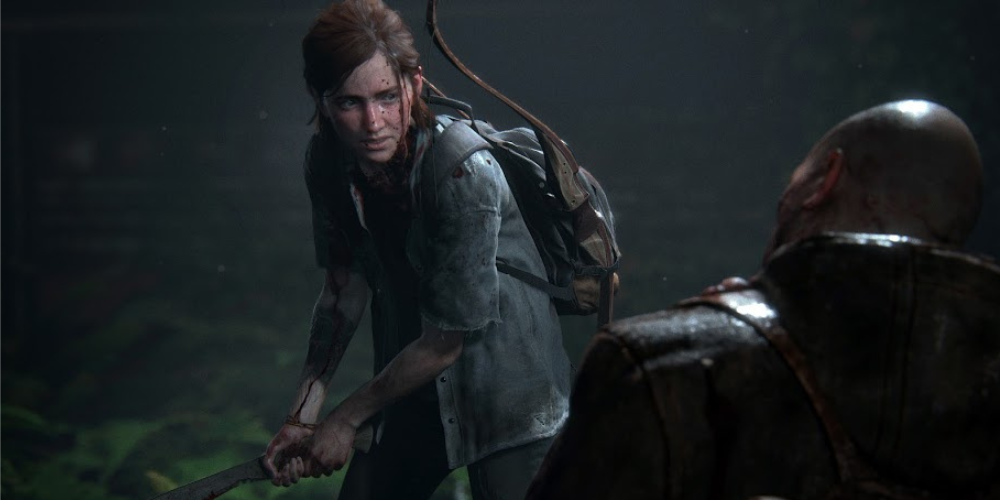The Last of Us Part II: Analyzing the Emotional Storytelling and Characters
- Feb 04, 2024
- 248

Released in 2020, The Last of Us Part II by Naughty Dog has become a monumental title in the realm of video games, known for its gripping narrative, complex characters, and its bold approach to storytelling. Through its intricate plot and profound character arcs, the game explores themes of revenge, grief, and the cyclic nature of violence, invoking strong emotional reactions from its audience. This provides an in-depth analysis of the game's storytelling dynamics, character evolution, and the emotional depth it brings to the digital narrative landscape.
A Tale of Revenge and Redemption
The narrative of The Last of Us Part II is a complex web of emotions and motives, painting a stark picture of the consequences of revenge. Set in this world overrun by infected creatures and plagued by human malevolence, the story picks up five years after the events of the first game. Players navigate through a deeply immersive world, exploring the nuances of pain, loss, and the desperate search for closure.
The game's narrative structure is non-linear, shifting perspectives between the protagonist, Ellie, and Abby, a character initially presented as the antagonist. This unique narrative approach allows players to experience the story from both sides, challenging their preconceptions and evoking a sense of empathy and understanding for all characters involved. It's a daring narrative choice that foregrounds the complexity of human emotions and moral ambiguity.
Ellie: A Journey Through Grief and Anguish

At the heart of the game is Ellie, a character whom players have grown to love from the first installment. In The Last of Us Part II, Ellie is depicted as more mature yet visibly scarred by the events of her past. Her journey throughout the game is one marked by a profound sense of loss and an unyielding quest for vengeance, which ultimately leads her down a path of self-destructive behavior.
Ellie's character development is meticulously crafted, showcasing the emotional turmoil and internal conflicts she faces. Her relationship with Joel, the events leading up to his tragic demise, and the consequences of her vengeful pursuits are portrayed with raw emotional intensity, making her plight deeply resonant. Ellie's journey challenges the player's perception of right and wrong, showcasing the debilitating effects of unresolved grief and the lengths one might go to seek justice.
Abby: Unraveling the Enemy
Abby's introduction as an antagonist is a masterstroke in storytelling, setting up an initial sentiment of animosity from the player. However, as the narrative unfolds, Abby is humanized, revealing her personal motivations, vulnerabilities, and the traumatic events that shaped her actions. This narrative pivot forces players to confront their biases and consider the cyclical nature of violence and retribution.
Through Abby's eyes, the game explores themes of loyalty, forgiveness, and the quest for redemption. Her interactions with characters like Lev, a young runaway from a religious cult, serve to further develop her character, presenting her as a multidimensional figure capable of change and growth. Abby's storyline is a poignant reminder of the game's overarching message: in the cycle of violence, there are no true winners, only survivors marred by its consequences.
The Emotional Core of The Last of Us Part II

The emotional weight of The Last of Us Part II is its crowning achievement. The game excels at making players feel a wide range of emotions, from sorrow and horror to moments of tenderness and love. This emotional journey is facilitated by exceptional voice acting, motion capture performances, and a hauntingly beautiful score that complements the game's narrative beats perfectly.
Moreover, the game's immersive world-building and attention to detail allow players to become deeply connected to the characters and their surroundings. Environmental storytelling, through notes left behind and murals painted on walls, adds layers to the narrative, inviting players to piece together the story of a world ravaged by a pandemic and human conflict.
Consequences and Moral Ambiguity
At its core, The Last of Us Part II is a meditative exploration of the consequences of our actions and the moral ambiguity inherent in a world bereft of law and order. The game challenges players to question the conventional dichotomy of good versus evil, presenting a world where every character is driven by their own sense of justice and survival instincts.
This ambiguity is encapsulated in moments where players are forced to engage in actions that may go against their moral compass, further blurring the lines between protagonist and antagonist. It's a testament to the game's narrative prowess that these moments often lead to introspection and debate among its audience, highlighting the power of video games as a medium for storytelling.
Legacy and Impact on Gaming

The Last of Us Part II has left an indelible mark on the landscape, not only for its bold narrative choices but also for how it elevated storytelling within the medium. Its impact on players and the industry as a whole has sparked conversations about the role video games play in exploring complex human emotions and societal issues.
The game's divisive reception also speaks to its uncompromising vision and its success in challenging players to engage with uncomfortable themes and emotions. By pushing the boundaries of narrative and character development, The Last of Us Part II has set a new standard for emotional storytelling in video games, inspiring developers and players alike to imagine the untapped potential of the medium.
In conclusion, The Last of Us Part II is a masterclass in emotional storytelling and character development. By intertwining the destinies of Ellie and Abby within a narrative rich in themes of revenge, grief, and redemption, Naughty Dog has crafted a tale that is as heartbreaking as it is thought-provoking. It stands as a testament to the power of video games to evoke deep emotional responses, making it not just a remarkable game but a pivotal moment in the evolution of storytelling in video games.